If you regularly use drugs or alcohol, you should understand the distinction between dependence and addiction. Many people use these terms interchangeably, but they aren’t the same thing. Knowing the difference can help you identify when your substance use may have crossed into dangerous territory.
At NEM Recovery, we believe personal development is a vital component of recovery. Recognizing the early warning signs of addiction and dependence empowers you to seek help before a temporary pattern becomes a long-term crisis.
What Is Dependence?
Dependence is a physical condition that occurs when your body adapts to a substance and begins relying on it to function. If you suddenly cut back or quit, you may experience withdrawal symptoms, such as:
- Headaches
- Irritability
- Nausea or vomiting
- Anxiety
- Insomnia or nightmares
You can still become physically dependent on a drug even if it seems harmless or you take it under a doctor’s orders. For example:
- A coffee drinker who becomes fatigued, irritable, or headachy if they skip caffeine
- Someone with chronic pain who needs higher doses of prescribed opioids over time due to a growing tolerance
- A person on antidepressants who feels sick after missing a dose
Dependence does not mean you are addicted. However, it can set the stage for addiction, especially if you begin using substances to cope emotionally or psychologically.
What Is Addiction?
Addiction is more than physical dependence – it’s a chronic brain disease marked by cravings, a loss of control, and continued use despite harmful consequences.
Unlike dependence, addiction affects every area of your life, including:
- Mental health
- Behavior
- Relationships
- Career
- Legal standing
Examples of addiction include:
- Continuing to drink despite having multiple DUIs on your record
- Using medications to get high instead of their intended purpose
- Prioritizing drug use over your responsibilities, loved ones, or health
Addiction rewires your brain, making it increasingly difficult to stop without help – even when you want to.
How Addiction Progresses
While dependence doesn’t always lead to addiction, the risk increases when you use substances to manage emotional distress or avoid dealing with life’s problems. Here’s how the cycle often unfolds.
- Tolerance increases: You need more of the substance to feel the same effects.
- Cravings develop: You start thinking about drugs or alcohol when you’re sober.
- Behavior changes: You begin using for pleasure, escape, out of habit, or to avoid withdrawal.
- Isolation sets in: Hobbies, friendships, and obligations fall away.
- Consequences pile up: You keep using despite legal, financial, or health problems. Before long, a once-occasional behavior can dominate your life.
Red Flags That Dependence Has Become Addiction
It may be time to seek professional help if you answer “yes” to one or more of the following questions.
- Do you drink or take drugs more than you intended?
- Have you tried to taper off or quit without success?
- Do you spend a lot of time getting, using, or recovering from substances?
- Has your habit led you to neglect work, school, or family responsibilities?
- Have you lost interest in formerly enjoyable activities?
- Have you put yourself in dangerous situations while under the influence?
- Do you continue to use despite negative physical or emotional effects?
- Are withdrawal symptoms making it feel impossible to stop without help?
When to Get Help
You don’t have to wait for a devastating consequence or “rock-bottom” moment. The earlier you seek help, the better your chances of healing your body, mind, and relationships.
You may benefit from treatment if:
- You feel anxious or desperate when thinking about running out of your substance of use
- You routinely use drugs or alcohol to manage stress, trauma, or emotional pain
- You’ve had one or more unsuccessful attempts to quit
- People close to you have expressed concerns about your well-being
- You’ve experienced legal, health, or financial issues because of your substance use
Evidence-Based Care for Lasting Change
NEM Recovery provides compassionate, professional attention tailored to your needs. Whether you are dependent, addicted, or unsure where you fall on that spectrum, we’re here to guide you.
Our services include:
- Medically managed detox to manage withdrawal symptoms with minimal discomfort
- Residential treatment in a private, distraction-free environment
- Dual-diagnosis care for co-occurring mental health conditions
- Therapy and life skills training to build a foundation for long-term recovery
Don’t let substance use define your future. Contact us to learn about your options and start creating the structure you need to rebuild your life.

